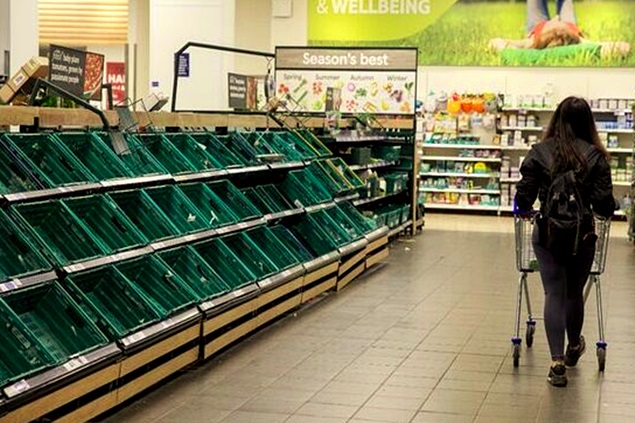911

Food prices at British supermarkets have increased by 15.7% since the beginning of the year until April, the highest annual increase recorded since 2005, but lower prices are on the horizon, according to the British Retail Consortium (BRC), as cited by European Supermarket Magazine.
Overall inflation among BRC members has decreased to 8.8% from 8.9% in March, as price increases for non-food items have slowed down due to significant discounts on clothing, footwear, and furniture.
Higher coffee beans and more expensive production of processed foods have led to the rise in food prices, but butter and vegetable oil prices were starting to decline by the end of last month.
"We should start to see food prices coming down over the coming months as wholesale price decreases and other cost pressures filter through," said BRC Chief Executive Helen Dickinson.
The UK's official measure of consumer price inflation peaked in October last year at 11.1%, the highest level in the past 40 years. Since then, it has decreased slower than expected by the Bank of England and remained above 10% in March.
The UK's Office for National Statistics measure of food price inflation, which is calculated differently from the BRC, was at its highest since 1977 in March, at an annual rate of 19.1%, reflecting higher costs for biscuits, cakes, and confectionery.
Market research company Kantar stated last week that it estimated food inflation to have decreased to 17.3% in the four weeks to April 16, down from 17.5% a month earlier, but said it was too early to be certain that inflation had peaked.
The BRC data was based on prices collected during the period of April 1-7. In other figures released on Tuesday, companies were cautiously optimistic about the prospects for the remainder of 2023.
The Confederation of British Industry stated that business volumes in the services sector had modestly declined in the three months to April but firms expected a return to growth in the next three months. For consumer services companies, this would be the first growth since February 2022.
The Institute of Directors (IoD) reported a fifth consecutive monthly increase in confidence among its members, returning to its level just before Russia invaded Ukraine in February 2022.
"It is particularly heartening to see a recovery in investment intentions, raising hopes that the economic fundamentals can continue to improve in the months ahead," said IoD Chief Economist Kitty Ussher.





